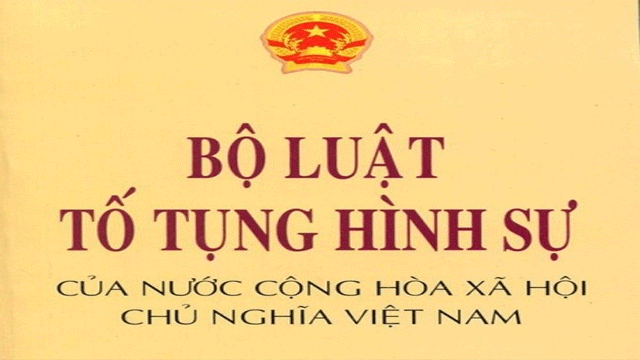What are the cases of exemption from criminal responsibility in Vietnam - Cam Tu (Long An)

Cases of exemption from criminal responsibility in Vietnam
1. Basis of criminal liability in Vietnam
Article 2 of the Criminal Code 2015 stipulates the basis of criminal liability as follows:
- No one who commits a criminal offence that is not regulated by the Criminal Code 2015 has to incur criminal liability.
- No corporate legal entity that commits a criminal offence that is not regulated in Article 76 of the Criminal Code 2015 has to incur criminal liability.
2. Cases of exemption from criminal responsibility in Vietnam
2.1. Unexpected events
Pursuant to Article 20 of the Criminal Code 2015 stipulates unexpected events as follows:
The person who commits an act that results in harmful consequences is exempt from criminal responsibility if such consequences cannot be foreseen or have to be foreseen.
2.2. Lack of criminal capacity
Article 21 of the Criminal Code 2015 stipulates the lack of criminal capacity as follows:
A person who commits an act that is dangerous to society is suffering from a mental disease or another disease that causes him/her to lose his/her awareness or control of his/her behaviors is exempt from criminal responsibility.
2.3. Justifiable force
Justifiable force is defined in Article 22 of the Criminal Code 2015 as follows:
- Justifiable force in self-defense means the a person's use of force which is reasonably necessary to defend against another person's infringement upon his/her legitimate rights or interests of himself/herself, other people, the State, organizations.
The use of justifiable force does not constitute a criminal offence.
- Unjustified force in self-defense means the use of force which is more than reasonably necessary and not appropriate for the nature and danger to society posed by the infringement.
The person who uses unjustified force in self-defense shall take criminal responsibility as prescribed by 2015 Penal Code.
2.4. Urgent circumstances
Article 23 of the Criminal Code 2015 stipulates urgent circumstances as follows:
- An urgent circumstance is a circumstance in which there is no other way but an amount of damage has to be inflicted in order to prevent a greater damage to lawful rights and interests of oneself, another person, the State or an organization.
The act of inflicting damage in an urgent circumstance does not constitute a criminal offense.
- If the damage inflicted is reasonably unnecessary in the urgent circumstance, the person who inflicts such damage shall bear criminal responsibility.
2.5. Infliction of bodily harm while capturing criminals
Infliction of bodily harm while capturing criminals specified in Article 24 of the Criminal Code 2015 as follows:
- If violence and infliction of bodily harm to a criminal is the only way to capture him/her, the use of violence in this case does not constitute a criminal offence.
- If the bodily harm inflicted by the use of violence is obviously more than necessary, the person who inflicts such damage shall bear criminal responsibility.
2.6. Risks from researches, experiments, application of technological advances
In Article 25 of the Criminal Code 2015, the risks from researches, experiments, application of technological advances are as follows:
The infliction of damage during the conduction of a research, experiment or application of technological advances does not constitute a criminal offence provided the procedures and regulations are complied with and all preventive measures are taken.
The person who fails to comply with the procedures, regulations or take all preventive measures and causes damage shall bear criminal responsibility.
2.7. Following orders of commanders or superiors
The act of following orders of commanders or superiors in Article 26 of the Criminal Code 2015 is specified as follows:
A person who inflicts damage while following an order of his/her commander or superior in the army to perform national defense and security duties is exempt from criminal responsibility if he/she complies with procedures for reporting to the order giver but the order giver still request that the order be followed. In this case, the order giver shall bear criminal responsibility.
This provision does not apply to the cases specified in Clause 2 Article 421, Clause 2 Article 422 and Clause 2 Article 423 of the Criminal Code 2015.
Ngoc Nhi
- Key word:
- Criminal liability in Vietnam
 Article table of contents
Article table of contents












